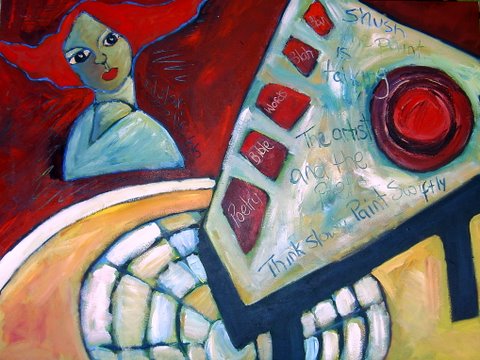The Grave Of My Fathers (Carved from the mind of my soul)
Silence rules a land once heard
As the moon helplessly try…
To restore life in this house
I sit at my place
I see no faces
Only outlines of humans in the dark
Their heads bow in sorrow
As a roaring wind shakes the faleo’o
Then a thunder followed
It lighted the sky
But there were no clouds to rain
Nor a tree to strike
We sat in a circle
On rough fine mats
We wore lavalavas
Without shirts
Then the man on the far corner
Opposite me spoke the first words
His grieving voice starts to sing
His face glitters in the moonlight
As if though his tears have turned solid on his cheeks
For between us in the middle of the faleo’o
Laid a coffin
After he sang then he said
“He was a son to us all
He had his father’s fist
And his mother’s heart
He was blessed by his heritage
Crowned with a legacy of his ancestors
He lived to die…and indeed he has died to live”
Then the man…through the darkness
Pointed at me
And said
“It’s your turn,
Say your last words
For he who lies between us”
I stood up from my corner
And walked towards the coffin
Then I stood beside it
As if though I was stopped so sudden
I gathered my thoughts
And then started to talk
“The darkness cannot hide your faces from my heart
Nor the wind could shake your strength from my soul
The thunder cannot drain your blood from my veins
Nor your grieving souls will go in vain
But for him…let your son go home
For he has died to live”
I looked at the feet of the coffin
Inscribed on it “Carved from the mind of my soul”
In the centre of the coffin
I saw the words “Tradition without pride,
For to live for God…is to die in this house”
I looked through the glass-window on the head of the coffin
Only to find myself staring back at me
Notes
The faleo’o is an analogy of lineage. The land of my fathers is the place I left, when I migrated to NZ. I broke that circle of the faleo’o. The land (or lineage connected to it) that was “once heard” as far back as our ancestors – has lost a son and the present heir of the line. What was once the land of their sons has become “The grave of our fathers”.
I believe this is an analogy and story that most New Zealand born Islanders and Migrants can relate to. We now live in the land of our children. But oh! How dear the price we paid.
Lady for granted
Lately I’ve moved
Life seemed to be on a role
I ripped running out of your hands
Not looking back at you beloved
Today I came back
Just to check on things
To see how ur doin’
You waited for me everyday
You stand on the balcony
Your face wrinkled with years of laughter
Your eyes dimmed of teary nights
Your hair, as white as a cloud on a fine day
You smile as though to camouflage a cry
You reached out to take me in your arms
To me, you are the remnants of the past
But to you…I’m the reward of your pain
You held me with all the strength
You have left
You looked up to me
And said…
“From a boy to a man
That’s how you have changed
The change of time
But you are forever my son”
The tears of reunions
The feelings of remembrance
The face of time rejected
May we not forget the lady taken for granted
Notes
This poem is about and is dedicated to my great-grandmother. She partly raised me and she passed away in 2001.
Sasa
They call them the sons of the sun
People of the sea
Men of the land
Navigators and fighters
They travelled the oceans
To seek a home of the future
A land of their own
A land to live and die for
In the process
They made each other the enemy
The land was the prize
And life became the cost
On the fields of war
Before weapons meet
They would beat the wood
And dance the sasa
Of all the days of joy and sorrow
Living with faces of love and hate
Of all the times of peace and war
Fighting for family and love
Today could be the last and the end
The day that ends a lifetime
In moments then meet the last breath
So dance, sons of the sun, like never before
Dance to cast fear in the enemy’s heart
Dance to farewell the morning dew as if it’s your last
Dance the last rights of the death
Dance the trembling of the wimps, about to become warriors
Notes
The sasa was originally a warm-up for war. Nowadays it is a form of entertainment. Which is still good as its appeal ensures it artistic survival. But may we never forget the origins of this dance. The significance of how it initiated boys into men and the deep emotions that this dance once provoked on the battlefields.


